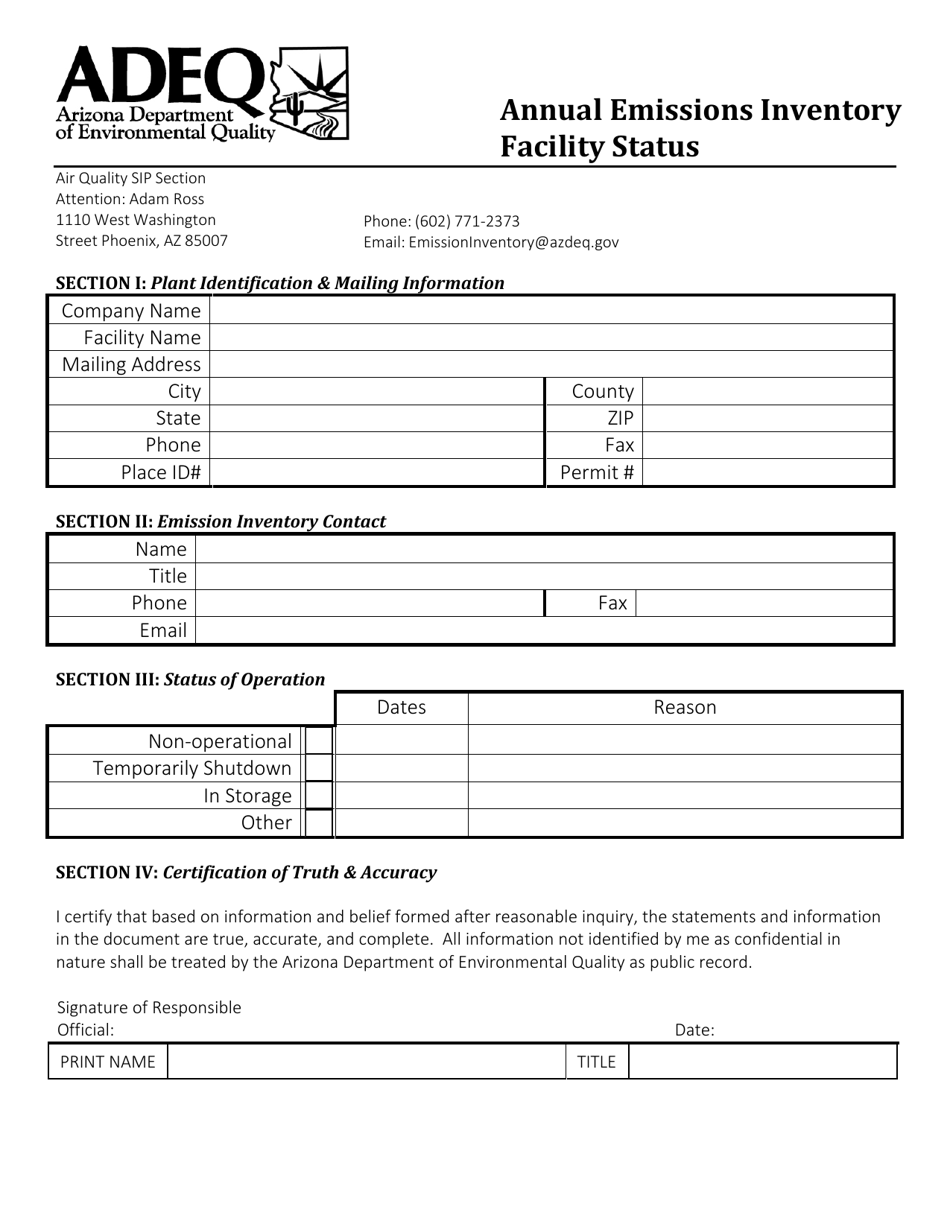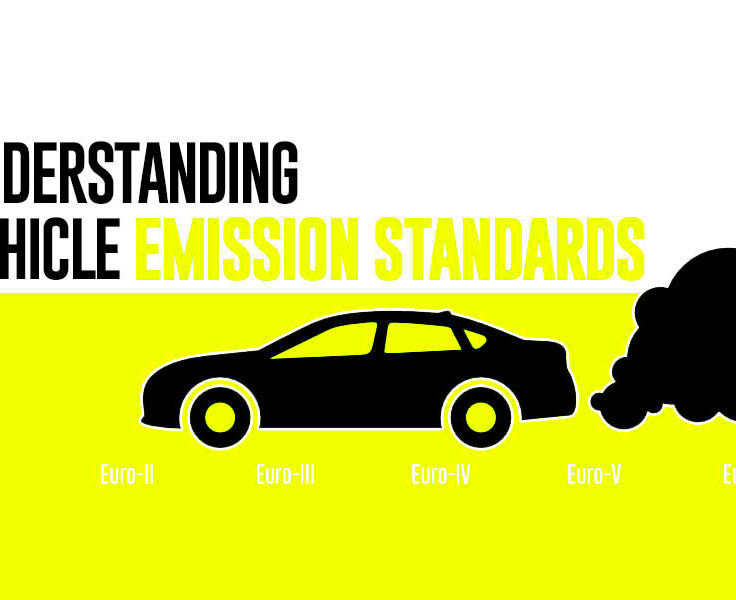Emissions Standards and Compliance in Arizona
One of the many purposes of emission standards in Arizona is to help maintain air quality and public health. These standards set limits on the quantities of pollution that can be released into the atmosphere by vehicles and industries. It takes into consideration that emissions are regulated in order to mitigate air pollution, which can cause significant medical problems among Arizona residents. They are essential for understanding them as an individual or business owner operating within the boundary of the state.
The Arizona Department of Environmental Quality (ADEQ) predominantly controls Arizona’s air quality standards. Although the state adheres to federal guidelines, it also has particular regulations that cater to local demands. Depending on the kind of pollutant and source of emissions, the standards differ. For example:
- Mobile Sources: Cars, trucks, and other vehicles must meet stringent emissions testing requirements.
- Stationary Sources: Factories and power plants are required to implement controls to minimize emissions.
In totality, knowledge of such benchmarks is important in order to conform and help in creating a more preferable atmosphere.
Importance of Compliance for Businesses

The adherence to the norms on emissions is not only a legal requirement for companies, but it is also their corporate responsibility. In addition, noncompliance with these rules can lead to serious financial penalties, lawsuits and tarnished image in society. Following are some reasons why compliance is necessary:
- Financial Implications: Non-compliance can lead to significant financial penalties, which can cripple small businesses.
- Reputation Management: A company known for environmental negligence can lose customers and face public backlash.
- Market Competitiveness: Adhering to emissions standards can enhance a business’s competitive edge, particularly as consumers become more environmentally conscious.
In addition, companies that comply with regulations usually face less difficulty in acquiring licenses and permits thereby experiencing less tedious operational processes. Hence, implementing emission control measures can enhance lifelong viability.
Key Regulations Governing Emissions

The emissions regulations that Arizona has are broad and cover a variety of pollution sources. Below are some of these major regulations:
| Regulation | Description |
|---|---|
| Arizona Revised Statutes Title 49 | Covers air quality control and establishes the framework for emissions standards. |
| Arizona Administrative Code R18-2 | Details specific rules regarding air pollution from mobile and stationary sources. |
| Clean Air Act | Federal law that mandates state-level compliance with national air quality standards. |
Compliance with regulations is important for businesses. They also need to know whenever there are changes in law because they may be amended based on environmental assessment and public health needs. By learning about these laws, businesses can prepare for audits and inspections so that no problems arise in future concerning their compliance.
Impact of Non-Compliance on Businesses

Businesses that do not comply with emission standards in Arizona may face dire repercussions. This is not merely a question of legality; it also has implications for finance, public image and more. Gaining insight into what this means allows businesses to make sound judgments and prioritize obeying regulations.
These are some important ramifications of not adhering to the rules:
- Financial Penalties: Fines for failing to meet emissions standards can be hefty. Businesses might face fines ranging from a few hundred to several thousand dollars, depending on the severity and frequency of violations.
- Legal Consequences: Non-compliance can lead to lawsuits and additional legal costs. This can drain resources and distract management from core business activities.
- Loss of Business Licenses: In extreme cases, failure to comply may result in the suspension or revocation of necessary operating permits.
- Damage to Reputation: Companies that disregard environmental laws can face public backlash. Customers are increasingly favoring environmentally responsible businesses.
In the end, lack of conformity can stall the expansion and continuation of an enterprise. When emission regulations are adhered to, businesses can secure their financial performance and promote healthy surroundings.
Steps for Ensuring Compliance

To ensure compliance with emission standards one needs to be proactive. An organized manner in which they meet legal requirements and promote environmental stewardship should be adopted by organizations. Here are some things to think about:
- Understand the Regulations: Familiarize yourself with local, state, and federal emissions standards that apply to your business.
- Conduct Regular Audits: Regular assessments can help identify areas of non-compliance and track emissions effectively.
- Implement Emission Control Technologies: Invest in technologies that reduce emissions, such as scrubbers, filters, and improved machinery.
- Employee Training: Educate employees about compliance requirements and the importance of emissions control. Make it part of the company culture.
- Stay Updated: Regulations can change, so keeping abreast of any updates is essential for ongoing compliance.
By utilizing these procedures, businesses will be able to effectively reduce their emissions and comply with them in a manner that helps both the environment and their operations simultaneously.
Common Challenges in Meeting Emission Standards
It’s not easy for one by all mean to meet emission standards. In most cases there are different challenges which businesses face that complicate conformance efforts. By comprehending such obstacles firms can formulate ways of circumventing them.
Behold, some of the usual obstacles:
- Financial Constraints: For many small and medium-sized businesses, the cost of upgrading equipment or implementing new technologies can be a significant burden.
- Lack of Knowledge: Some businesses may not fully understand the regulations or how to implement them, leading to accidental non-compliance.
- Resource Limitations: Smaller businesses often lack dedicated personnel or resources to monitor emissions and maintain compliance.
- Changing Regulations: With laws frequently evolving, keeping up with changes can be daunting for businesses.
In order to tackle these obstacles, businesses need to get advice from specialists in the field of ecology, take part in learning programs, and look for options that are accessible. By facing these problems directly, it will both guarantee compliance and create an atmosphere of ecological responsibility in the firm.
Resources for Arizona Businesses
In order to navigate emission standards in Arizona that can look unapproachable, one must know that there are many resources available. No matter if it is a new small company or an established corporation, using these resources will ease compliance processes and thus help you meet emissions regulations.
Here are some crucial materials:
- Arizona Department of Environmental Quality (ADEQ): The ADEQ provides comprehensive information on state emissions standards, compliance resources, and permitting requirements. Their website is a vital starting point.
- Local Chambers of Commerce: Many local chambers offer workshops, seminars, and resources to help businesses understand and comply with environmental regulations.
- Environmental Consultants: Hiring an environmental consultant can provide expert guidance tailored to your specific business needs. They can help with audits, compliance assessments, and implementation of emission control technologies.
- Training Programs: Various organizations offer training sessions focused on emissions compliance. Participating in these programs can enhance your team’s understanding of regulations.
- Online Resources: Websites such as the U.S. Environmental Protection Agency (EPA) provide valuable information on federal regulations and guidelines that complement state laws.
In so doing, Arizona businesses will be able to manage the intricacies of emission standard regulations while institutionalizing adherence and ecological governance.
FAQs about Emissions Standards and Compliance
For businesses that are attempting to adhere to regulations, understanding emission standards may pose a number of queries. The following are some frequently asked questions that aim at addressing common issues:
| Question | Answer |
|---|---|
| What are emissions standards? | Emissions standards are legal limits on the amount of pollutants that can be released into the atmosphere from various sources, including vehicles and industrial operations. |
| How often should I conduct emissions testing? | Testing frequency depends on the specific regulations applicable to your business. Generally, annual testing is recommended, but some sources may require more frequent checks. |
| What are the consequences of non-compliance? | Consequences can include financial penalties, legal actions, and reputational damage. In severe cases, businesses may lose their operating licenses. |
| Where can I find help with compliance? | The Arizona Department of Environmental Quality (ADEQ) is a great resource. Additionally, hiring environmental consultants can provide tailored assistance. |
Representatives from other industries often wonder whether their emissions amounts meet legal limits because there’s so much pressure on them anyway. For instance, these FAQs tackle popular queries about emissions criteria faced by firms out there. Nevertheless, if one needs specific advice regarding such practices, it is necessary to consult an expert who specializes in such aspects.
Conclusion on Emissions Standards in Arizona
In the state of Arizona, the significance of emission standards cannot be overstated since they help safeguard public health alongside the environment. For companies, adhering to these regulations means going beyond a mere legal requirement but expressing themselves as responsible corporate citizens who duly care for everyone’s wellbeing. By knowing what is encompassed in emission laws and tapping on achievable resources, they will be able to eliminate confusion in their path to complying.
Being aware of the emissions regulation, sinking funds into required technologies as well as building a conformity culture can go a long way in helping businesses. It helps in avoiding legal problems and contributes positively to a cleaner and healthier environment for all Arizonians. Moving ahead towards prioritizing emission compliance will ensure a win-win scenario in terms of business prosperity and environmental protection or sustainability.


